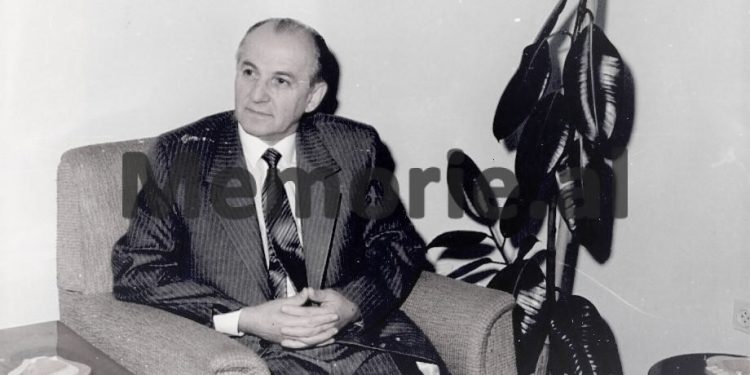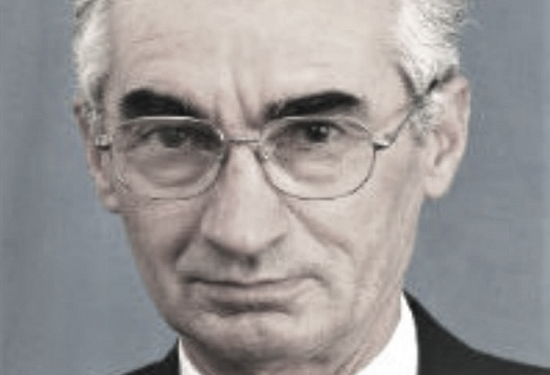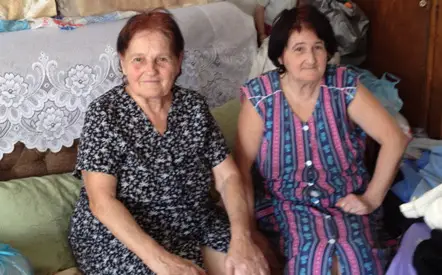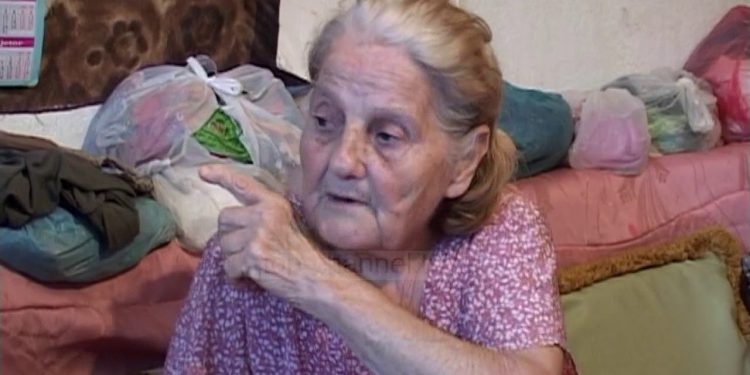By Eugene Merlika
Second part
-THE BIG SCAM-
(Fake democracy and pink communism)
“Albania will be enjoyed by us and our children”
Ramiz Alia
Memorie.al / “Our system has capitulated to that capitalist one, so we are forced to change strategies”! With this sincere statement that contradicted the half-century-old dogma of the “superiority of socialism”, as a social, political and economic order, the President of the State and of the Party of Albanian Communists, Ramiz Alia, in October 1989, began his speech before the Bureau Political. He was aware that that word would be a touchstone between two historical times, that of socialism and another that would follow, with all its unknowns and that would be, in his aim and of the red caste he presided over, a pink capitalism.
Continues from last issue
The fear of reprisals of this stratum of the population, encountered not only in the upper caste of the communists, but also in the Catholic and socialist environments of Europe, combined with the tendency not to highlight the communist crime, in all its breadth and depth, made the priority, which it should have in the democratic system, remain only a lukewarm and unbuilt hope!
That fear predicted by many in the course of these years was not justified, as the revenges expected by the people, whose lives were crippled by the communist nomenclature, were not confirmed. This happened out of arrogance, fear of the law, thanks to a tendency not to complicate life more, or for other motives, which everyone can perceive as following their worldview. But I believe that no one can deny the fact that the attitude of that stratum of the population was, a lesson in style and morality in the highest degree, which showed its irrefutable spiritual superiority over their executioners, which surprisingly no one wants summer apparently.
Those circles of the European left, united with the ex-communists, in which even the successors of the ALP have entered with full rights, deep down find violence against the “fascists” appropriate, even though that violence weighed on three generations of innocent people. Thus, they did their best to avoid trials for tens of thousands of different punishments, in complete contradiction to the Charter of Human Rights, and helped the communist political class, with a little name makeup, to maintain its function leaders even in the new system.
This attitude was consistent with the concepts and principles that had accompanied their post-war history. According to Viktor Zaslavski, a well-known researcher, professor of sociology at the Luiss University of Rome, the leaders of the European left, especially the communists, “toward the tyrannized populations of the Soviet Bloc, showed an absolute indifference, as if it were meat for cannon that had to be slaughtered on the battlefield of history, to have the support of their oppressors, to seize power in the West. It was a cynical position on which very few, on the left, have made a real examination of conscience.”
This is why there is little or no talk in Europe about the crimes of communism, this is why we come across such phenomena that former State Security personnel enjoy political asylum and pensions in Italy, while a handful of old men at an advanced age, the brothers Popa, although they had risked their lives to enter the Italian Embassy and, to live in their dream Italy, repatriate without any possibility of living in Albania led by Fatos Nano and his friends.
In the speech of Mr. Alia clearly outlines a strategy for the future of Albanian society, which does not differ at all from the one designed and implemented by the Communist Party, from its birth to its false end. It is a strategy based on terror and fraud, on robbery and not respecting any human rights. “Prisoners and persecuted are old, they have no power and they are not dangerous. We must take care of their children. But these, by giving you a passport and putting pressure on you, we will remove them from Albania. Those who will claim oppose or insist, will be hurt and punished. Their wealth belongs to us, because we made it”.
Those who today strongly trumpet that communism already belongs to the past, after reading this part, I believe they will have a chance to review their beliefs once again. “Reformed” communism continues to see Albania with the same glasses that its predecessor saw. The “class war” will continue as the division of Albanians into “good” and “bad” continues. Only the methods, their facade, change. They become thinner, more cunning because they have to preserve the “democratic” form, but in fact they are crueler, more ruthless in their essence. It is not difficult from Ali’s words to imagine a country that is abandoned by its sons and daughters, in a powerful drama in which the nameless and faceless director stages something that resembles a kind of class cleansing, a kind of division, the basic criterion of which is, only descent, those born with a certain last name that somewhere, in some secret register, is put in a red circle.
Once these second-class citizens, after their property was taken, were kept locked up. Now they have to mix because they should not be present in the redistribution of wealth, which “belongs” to them, to others. They should run away, wander around the world in search of a better life, because their country, Albania, should continue to remain the property of the communists who “should” enjoy it generation after generation, robbing, tearing it apart, humiliating it in the eyes of the world, ruling it in all forms. Whoever would oppose this “axiom” would face the punishment that will return to its origin, in the nameless bullets of guerrilla units, or the dynamite on the thresholds of houses. The nameless murders of the nineties, until today, probably have their origins in that ominous word of the last official communist Head of State…!
From now on, this State has to change clothes, it has to take off the military uniform as Mao, and it has to wear the collared suit, to enter the salons of Brussels and Strasbourg. In his vocabulary, there should be no more “class war”, “war against capitalism”, “and dictatorship of the proletariat”, and other expressions of this type. They will enter there chanting “freedom”, “democracy”, “free market”, “Atlantic solidarity”, “human rights”. All these should serve as a fig leaf for a clear goal, an unwavering belief, an irrefutable decision of the communist dome, written in letters as red as blood, with which it will defend itself, if necessary: We and our children will enjoy Albania.
This would be, in the Ramizian project, democratic Albania. It would not be surprising if it was called only a project, however cynical and criminal it is. One could not expect anything else from a caste which had grown up with power in its hands, indifferent to the interests of the people, which it carried on its back. Never until then had the Albanian communist leadership been so honest in its presentation, so stripped of demagoguery, so transparent in its intentions. It had never revealed so openly the essence of its being, which was only the idea of power over a people that had been trampled on for so long, in the name of its “interests”.
The Ramizian vision in this speech before the Political Bureau, gives us in all its chilling truth the exact portrait of Albanian communism. In his nakedness he is stripped of all the beautiful words and reduced to a handful of people, without ideals, without principles, without morals, without scruples, who have only one goal: maintaining power at any cost, by any means, by any means price. This truth takes on tragic proportions when it is considered that, for almost half a century, this handful of people has deceived millions of Albanians in a dizzying way, boasting about ideals, about the interests of the people and the homeland, about principles, loyalty to them and the fight for protection theirs, on the proletarian morality, the young man and other things of this kind, “pleading” for the national issue and compatriots outside the borders.
“Kosovo is on the threshold of promulgating the Constitution. Let them do as they want, because we have our platform”. An indifference that reaches the point of cynicism, not as if it is about the divided and abused half of the Nation, but about an unknown people of Asia or Africa. This was the true attitude of the Albanian communists towards their blood brothers. They had revealed it during the War, when they didn’t have the courage or the will to defend the regained borders of Albania, when they didn’t even have the courage to ask for the referendum on Kosovo, which Tito himself had promised you in Bujan. They had shown it since the dawn of their power, silently approving the mass murders of Kosovars by Tito’s soldiers, as in the case of the Tivar massacre, or later their displacement from the lands and displacements in distant Anatolia by Ranković’s udbas . However, through demagogic propaganda, they managed to convince a good part of Kosovars that the Government of the “Mother State” and “Baca Enver” were thinking about them day and night.
In their imagination, communist Albania had taken the form of a rainbow, towards which all eyes turned. The truth was quite different. Those who tried to “cross” the rainbow, to find freedom, away from Serbian violence, quickly realized what the truth was by trying prisons and exiles as “Yugoslav agents”. Others would understand late, very late, when they saw with their own eyes how Albania was destroyed by “Baca” and his followers. There are those who have not understood it yet and continue to sing hymns on the Internet. It is their right, but they would do well to read the only phrase that, in the direction of Kosovo, which was fighting for survival after Milosevic’s ominous speech, was uttered by the head of the communists of the “Mother Earth”. They would do well to apologize to those thousands of Albanians who sought freedom in the courtyards of foreign embassies on July 2, 1990, who were branded by them as “renegades and traitors to the homeland”.
This gang of power grabbers, which does not retreat before any crime to perpetuate it, has designed with a precision that will stun you in the coming years, when he could no longer be a son of violence. Changes in the world make it mandatory to change the style. The half-century-old deception, under new conditions, must be perfected further. Now it will not only be served to the Albanians, who are fed up with it, but also to the “free world”, in which Albania will officially seek to enter as a “democratic country”, which has left behind the hateful experience of “monist society”.
Accounts are made in detail, taking into account all cases. There are signs of impatience in the Albanian youth and there may be attempts or tendencies to radically change things. This may conflict with the project of perpetuating power, which is established through its passage from fathers to sons. So Albania is perceived as a medieval kingdom, in which the ruling caste gives itself the right to inherit wealth and officials, as the aristocracy did in early times. To ensure this state of affairs, which would sound anachronistic at the turn of the millennium, the party has set in motion all its levers, from the multitude of cadres to the thugs who will, by violence, legislate its will.
“…Therefore, we must always be prepared for both ways of maintaining power: the peaceful way and the way of armed struggle. We are prepared for both paths and for this we have our organs of violence and very determined people who we have prepared all these years with efforts and sacrifices. Woe to those who will dare to come before us and oppose us…”!
The cadres quickly put them to work, distributing them through the parties, through the press, in the institutions, while the bandits were saved for more difficult days, for the last attack, to set fire to Albania, and its credibility in 1997 In that case, in all the variety of their cruelty, “very determined people” appeared, the advocates of blind violence who managed to burn alive the Albanian sons of Shiku, who were protecting the institutions. There was one who went so far as to cannibalism, drinking the blood of a young man tortured and then killed by the maddened mob. As a reward, that “honorable lady” became a member of parliament, while for the boy who fell heroically in charge of his duty; silence fell along with the tears and pain of his family members. Only a few days ago, President Moisiu had the courage to decorate them as servants of the State, fallen in the line of duty.
This would be the last scheme of the power’s strategy, a scheme that did not take into account any respect for Albanian traditions and morals, nor for the simplest rules of law. But the journeyman of this building with a foundation of crimes knows very well that in the panic of the collapse of the regime, his followers are not calm. Ahead is the unknown of confronting the other world, that of the West, which has won the “cold war”, half a century. Rivers of black ink had been poured over that world until then, without sparing the most insulting expressions. But even this confrontation was taken into consideration early on and to everyone’s surprise, Mayor Alia revealed the credit cards, which had been kept secret for many years.
“If the need arises, we will also have the support of external ideological allies in power, which I do not need to mention. Despite the problems that separate us from them, keep in mind that we are united by our common cause, which is the power of the communists, regardless of temporary nuances and discords. In addition to ideological allies, if need be, you will also have the support of other allies in the West, with whom we have preserved the threads of old ties, for the sake of great interests. Comrade Enver and I have preserved these necessary and vital ties, which in the end, guaranteed our popular power, which we will preserve like the eyes of our foreheads even now and in the future and forever…”!
This is one of the culminating and most interesting points of the word that explains many “enigmas”, not only of the past, but also of the years of transition to the so-called democracy. The thought flies far away, in the hazy years of the civil war, when the aid went to the partisans, not to the nationalist forces, when Miladini forced Enver Hoxha to make pieces of the ‘Mukje Agreement’, which coincided with the allied war strategy, without moved an eyelash, when the nationalist leaders were abandoned in Albania and treated as prisoners of war in the camps of the allies in Italy or Greece, when they found any pretext not to land in Albania, to help the anti-communist forces, gathered in the North, when the King of Albania was not given the opportunity to return to the Motherland, as the communists had decided, when…!
After half a century, the thought stops at the first years of change, at the times of great hopes, at the various representatives of Europe who preached peace, forgiveness, who brought together those who came from experiences of persecution and those who they had implemented those that gave political shelter to former Security personnel who were “threatened” by “Berisha’s regime”, who preferred graduates of the regime to “unschoolers” against the regime to give you the opportunity of exile. After shielding the future from old and new connections with former friends and former enemies, President Alia ends his speech with an expression of confidence that leaves no room for doubt: “Victory and power will be eternal Ours”.
If I had read this material in 1990-’91, I would have called it an expression of the delirium of a dictator who does not want to believe his end, like dreams served to collaborators to keep the morale of the troop alive. it crumbles under the weight of ruins, like the production of a brain heated by the fever of power. His speech would be more like the optimism of Hitler who, although surrounded on all sides by enemy armies, hoped to win the war at the last moment, with the atomic bomb that his scientists were trying to produce. Today, after fifteen years, that in their journey they have completed the mosaic that Ramiz Alia drew in 1989, sadness captures my soul and paralyzes my thinking.
“Wretched country, you get scared when you see yourself. We had it as a mother and it became a grave for us, where only the lips of some madman laugh, where the sighs, cries and groans that fill the air are uncountable…”! This was not the Scotland of Macbeth, but the Albania of Enver and Ramiz. In it, we spent most of our lives without freedom, without rights, without development, in misery, in psychological and police terror. We had a burst of joy when we saw the Berlin Wall coming down, and the fall of communist governments in other countries. We were excited to the point of ecstasy on February 20, 1991, when we saw the dictator’s monument fall and be dragged away.
We believed wholeheartedly in changing our lives and the life of the country. With the naivety of a child, we believed everything: the parties that sprouted like mushrooms of their leaders who pleaded for democracy, the promises of a European Albania and white checks, the West that would welcome us with open arms and make us rich immediately, the idea that there would be a punishment for criminals and a reward for their victims. But, above all, we believed in the vision of a society that would slowly break away from past history, ideas and practices, to move forward on the path of freedom, economic development, well-being and civilization, a society that would to renew itself continuously and would know how to evaluate its potential opportunities in its favor. Today, we understand that all our illusions remained just that, that we were captives of a great deception that our democracy had to be put in jeopardy.
Winston Churchill used to say that: “The greatest statesman cannot foresee more than six months.” After fifteen years, today all the “prophecies” of former President Ramiz Alia have been confirmed. Is it an expression of his political genius, of his media skills, or is it a historical fatality that continues to define our lives, in the form of a very prolonged rule of a caste that transmits from generation to generation an unquenchable thirst for power alone? Could the events and phenomena of this prolonged transition have taken a different direction? How long will we remain captive to a scheme that has caused us so much pain and continues to prejudice our future? How long will we continue to live in the lap of that great deception that accompanied us in these years? How long, with our naivety, will we continue to feed that deception, still trusting those who built it according to the mastermind’s ideas?
Perhaps the time has come for everyone, in his conscience, to answer these questions and the answers to be poured into the vast sea of the general consciousness of the People of the Nation, which needs a shake-up, a revival, a re-evaluation of to me…!
I tried to elaborate in this article a series of reflections about these years, already sufficient as time, to make the necessary change, which would have brought Albania closer to Europe as a standard of living, as an institutional mindset, as a community of people who, having completed the examination of conscience about the past, looks to the future with faith and clear goals. When the dictator’s monument fell and was dragged away, these were the dreams of most Albanians. Today, unfortunately, these remain dreams again. Albania remains connected, to a large extent, with its past and is unable to shake it off its shoulders. Its mindsets, people and symbols dominate everywhere, along with the misery, lawlessness, arrogance of the new caste, grafted onto the old stock. The balance of these years’ remains poor at the community level, although the personal initiatives of Albanians have visible results inside and outside the country. Once again, we showed that we are more attracted to the “lost issue”, as if we want to give justice even today to the great historian of two hundred years ago.
My reflections tried to explain this rather short transition time, with all its vicissitudes, failures, non-achievements and problems, as after a project very cunningly drawn up more than fifteen years ago and put into practice, with much punctuality, in all those years. I would like this reasoning of mine to be only a guess, a bad dream, so that the course of events does not prove the conviction, which I believe is not only mine, no matter how political fantasy it may seem. I think it is up to those who, in one way or another, had and have the burden of responsibilities for the decisions made in the life of the State’s leadership, to prove the opposite. Otherwise, the least moral duty towards today and the future is to explain why they became the founders of that project, which is costing this country so much. Memory.al
March 2004














